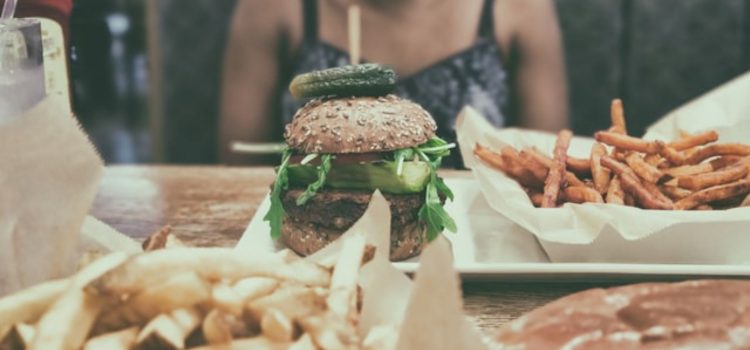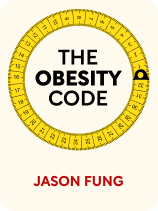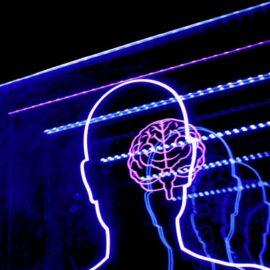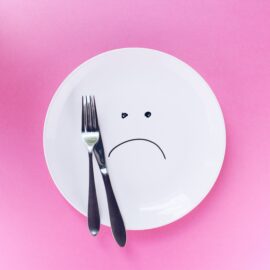

This article is an excerpt from the Shortform book guide to "The Obesity Code" by Jason Fung. Shortform has the world's best summaries and analyses of books you should be reading.
Like this article? Sign up for a free trial here .
How can we overcome obesity? What are some simple changes you can make to prevent packing on excess weight?
According to Canadian nephrologist Jason Fung, beating obesity means changing what you eat as well as when you eat. In practice, this means eating a diet composed of whole foods and practicing fasting. Whole foods help you feel full and don’t spike your insulin, while regular fasting lowers your insulin long enough to reverse insulin resistance.
Here’s how to overcome obesity, according to Jason Fung.
Change What You Eat
In his book The Obesity Code, Jason Fung explains how to overcome obesity using diet alone. He outlines several diet changes that reduce your insulin levels and combat obesity. In general, a healthy diet involves a high amount of healthy fats, a moderate amount of healthy proteins, and a moderate amount of healthy carbohydrates.
Change #1: Avoid added sugars. Forego sugar-sweetened drinks such as soda, refrain from snacking on sugary snacks such as candy, and avoid sugary breakfast foods. Feel free to enjoy quality desserts, like bakery-made cakes and cookies, on special occasions, but not every day.
The alternatives: Instead of consuming sugar, choose unsweetened drinks and foods. Snack on nuts and fruits in moderation, and choose unsweetened coffee, tea, or water. For breakfast, choose healthy foods such as a vegetable omelet. For dessert, enjoy a square of dark chocolate with cacao content over 70%.
Change #2: Avoid refined carbohydrates, primarily wheat. Flour-based foods spike insulin levels and drive obesity. By removing them from your diet, you increase your chance of beating this disease. According to Fung, refined wheat products have no place in a healthy diet. While whole wheat retains some protein and fat, it’s still a highly refined powder that will spike insulin.
The alternatives: Instead of consuming refined carbs, choose whole carbs and eat them in moderation. This means many vegetables—such as tomatoes, broccoli, and zucchini—and healthy seeds and grains. In particular, Fung recommends quinoa, chia, and beans, all of which contain carbohydrates, fiber, protein, and various micronutrients.
Change #3: Choose healthy proteins and fats. Fung recommends eating 20% to 30% of your diet as protein. In his view, high protein diets are difficult to follow, since isolated protein is difficult to find in whole food forms and forces you to rely on artificial substitutes, such as protein powder. Choose grass-fed meats, wild-caught seafood, and whole, vegetable proteins. For fats, choose unprocessed fats including olive and coconut oils, natural lards, and fatty foods like avocados. Healthy fats stimulate insulin the least and may protect against obesity.
Change #4: Eat foods that suppress insulin spikes. Some foods, such as those high in fiber, can offset the insulin stimulation caused by carbohydrates and proteins. Fung recommends consuming whole, fibrous foods such as fruits and berries, seeds, and whole oatmeal. In addition, vinegar and fermented foods, such as kimchi, reduce insulin spikes and help you feel fuller.
Change When You Eat
Fung argues that intermittent fasting is the key to beating obesity. Combined with a healthy diet, intermittent fasting heals insulin resistance—here’s how it works.
In the short term, most diets produce weight loss. However, dieting alone can’t fix obesity, because dieting doesn’t lower your set weight. Once you fall beneath that set weight, your body will compel you to eat and regain any weight you’ve lost. To lower your set weight, Fung recommends intermittent fasting. Intermittent fasting is an eating pattern wherein you intentionally stop eating for a stretch of time. Research has shown that regular fasting reduces insulin resistance, lowering your set weight and allowing you to steadily lose fat.
Fung explains that when you fast beyond 24 hours, insulin levels fall and your body begins to derive energy from your stored glycogen and fat. Beyond two to three days, ketosis kicks in: Fat becomes your body’s main energy source, producing three energy molecules—glucose, fatty acids, and ketones—that fuel your body and brain.
According to Fung, fasting is a time-honored practice that humans have used to maintain good health for thousands of years. During our hunter-gatherer past, food was periodically scarce. To handle this, our bodies adapted to store fat as a back-up energy source in times of need. Since then, physicians in ancient cultures, such as ancient Greece, have lauded fasting as a powerful cure for many illnesses. Many religions prescribe fasting as a regular “purification” practice, and over three billion Muslims, Christians, and Buddhists fast as a normal part of life.
While some worry that fasting is unhealthy, Fung explains that these concerns are misplaced. He argues that fasting does not cause your body to consume your muscles for fuel, damage your metabolism, deplete your blood sugar, or deprive you of essential nutrients. In contrast, studies show that fasting regulates blood sugar and electrolytes, produces an increase in human growth hormone that conserves your muscles, and increases your metabolism once ketosis kicks in. For these reasons, Fung asserts that anyone can fast successfully and reap powerful health benefits.

———End of Preview———
Like what you just read? Read the rest of the world's best book summary and analysis of Jason Fung's "The Obesity Code" at Shortform .
Here's what you'll find in our full The Obesity Code summary :
- Why everything we were taught about obesity is wrong
- The theory of obesity as a hormonal disorder that causes overeating
- Why dieting doesn’t work and exercise actually has little impact on weight loss






